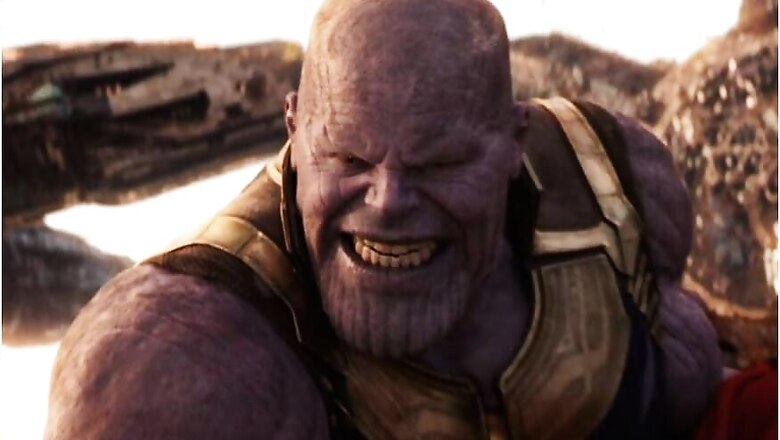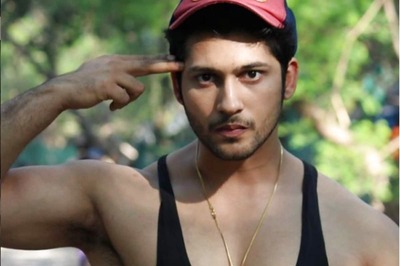
views
Avengers has hit the biggest opening ever in the history of cinema. It has earned $1.2 billion in five days and surpassed the previous chart topper by almost making twice the amount (Avengers: Infinity War—$640 million). At a time when superhero movies come and go by the bucket load, why the mad craze for Avengers: Endgame?
The movie is the logical climax of a long running, interesting intergalactic storyline, epic characters (including both gods and humans) and superstars who have become synonymous with the characters they have played (Tony Stark/Iron Man—Robert Downey Jr.) so much so that there are no post credit scenes doling out spoilers to spark interesting fan theories about the next movie. This is it. Combined with the mind blowing ending of the Avengers: Infinity War, in which half of the universe’s living organisms—including many super heroes—were turned into dust, what was not there to look forward to?
When we talk of superhero movies that have left an indelible impact on the audience, only a few come to mind—Avengers (Infinity War and Endgame) and The Dark Knight—both at complete different ends of the superhero genre.
The Avengers duology (2018 and 2019) by Marvel Studios is a fight of epic proportions featuring all powerful infinity stones, inter-galactic wars, wormholes, alien invasion, gods and humans fighting truly evil forces for the survival of the Marvel universe. At the other end of the spectrum is The Dark Knight (2008) by DC Comics in which true humans—Batman and Joker—slog it out with no superpowers at all in the earthly city of Gotham.
The contrast between the treatment, characters, storylines and context in the two films couldn’t be more stark. One reason why both these films have left found such a connect with the audience and what makes them truly great is the presence of supervillains, who have all had layered characters and motivations more complex than just conquering the universe.
What drives Josh Brolin’s Thanos is his conviction that the universe is overpopulated for the resources that need to be sustained. Hence, the only practical solution he can think of is to gather the six all-powerful infinity stones, wield them in the infinity gauntlet and just snap his fingers to impartially kill off half of all the living creatures. Simple and effective. He doesn’t want to become the Overlord of the Universe as is evident by the humble life he leads as a farmer after culling half of the universe. He does this so that the universe doesn’t implode—such a noble thought.
He initially starts off serially, one planet after the other—killing 50% of its population where he picks up his adopted daughter Gamora. However, doing it is so slow and time consuming plus all living beings procreate—by the time he would have reached the last planet, the initial ones might have already repopulated themselves.
So to avoid being stuck in a vicious circle, he plans to collect all the infinity stones and then achieve his purpose in a snap. Once he does it, he even destroys the infinity stones which made him invincible so that his actions couldn’t be undone. Do we remember any other hero or villain who gave up, passed on or completely annihilated such great power? He knew it might kill him (which it nearly did) but he still does it anyway, only to become a being so simple and powerless that his beheading by Thor during feels almost comical.
And then we have Joker from The Dark Knight. Released 11 years ago, it was a path-breaking film in several ways. Though totally opposite to Avengers in treatment, it is set in the city of Gotham which Batman protects and Joker wants to destroy. However, he is not a villain who wishes to agonise the system by blowing a hospital with a bomb-laden bus. Joker, in fact, is the true agent of chaos with no higher purpose, much unlike Thanos. He just wants to break the status quo, increase the entropy of the system and create chaos. Portrayed by Heath Ledger, who posthumously received an Oscar for his role, it was a once-in-a-lifetime portrayal of a villain. Joker had no special powers, neither did Batman and so we have an equal match.
Joker revels in the misery of others. He wants to break people driven by morality. He wants to prove that given the right amount of nudge, which isn’t usually much, most switch sides too easily. However, it takes a lot more to make Batman act against his own principle, which is why Joker wants Batman to kill him, just to prove that even he, of all men, is capable of turning. That’s why Batman and Joker are worthy opponents.
Joker is the rabid dog who runs behind cars but doesn’t know what to do when they stop. Unlike every villain there is, he even declined to kill Batman when he could. Because he didn’t want to lose purpose in life.
It’s not the superpowers, the CGI and the storyline that makes these superhero movies so special. Supervillains like Joker and Thanos—that mad titan king—really drive these movies forward. They help the audience take sides and they make superheroes who they really are by pulling them out of their comfort and making them fall only so that they can rise again.
Follow @News18Movies for more.



















Comments
0 comment